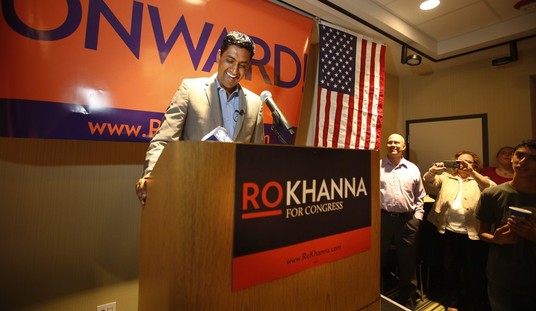No one has covered the Iraq war more closely than Michael Yon, especially over the last two years. On his own dime, he has embedded with troops in Iraq and reported the realities from the front line. He shocked many when he called the conflict a “civil war” in 2006, warning that the US had to change its strategy and tactics, which caused him more than a little conflict with supporters of the war effort that summer.
Today, Michael writes about the difference he sees in Iraq from our interview in June 2006 to now, and argues that the Beltway seems stuck in 2006 during the current debate:
It is said that generals always fight the last war. But when David Petraeus came to town it was senators – on both sides of the aisle – who battled over the Iraq war of 2004-2006. That war has little in common with the war we are fighting today.
I may well have spent more time embedded with combat units in Iraq than any other journalist alive. I have seen this war – and our part in it – at its brutal worst. And I say the transformation over the last 14 months is little short of miraculous. …
In a successful counterinsurgency it is impossible to separate military and political success. The Sunni “awakening” was not primarily a military event any more than it was “bribery.” It was a political event with enormous military benefits.
The huge drop in roadside bombings is also a political success – because the bombings were political events. It is not possible to bury a tank-busting 1,500-pound bomb in a neighborhood street without the neighbors noticing. Since the military cannot watch every road during every hour of the day (that would be a purely military solution), whether the bomb kills soldiers depends on whether the neighbors warn the soldiers or cover for the terrorists. Once they mostly stood silent; today they tend to pick up their cell phones and call the Americans. Even in big “kinetic” military operations like the taking of Baqubah in June 2007, politics was crucial. Casualties were a fraction of what we expected because, block-by-block, the citizens told our guys where to find the bad guys. I was there; I saw it.
Rather than debate how to drop troop levels in Iraq, Yon argues that we should be figuring out how to get more American troops into Iraq. We have an opportunit, Yon says, to win and win big in Iraq. The American military has earned tremendous respect from the Iraqis and see it as the most trustworthy institution in the country. Iraqis want to work with American soldiers because they see that the US military actually gets things done, and not just against al-Qaeda terrorists. While the central government is still struggling to build infrastructure, the commitment of American military planners means projects get completed.
Yon gets especially incensed by the Congressional characterization of the awakening movements as fueled by payoffs. Certainly people expect to get paid for performing security work; even the American troops in Iraq would mutiny if Congress suddenly demanded that they risk their lives for no compensation at all. The very first American troops at Valley Forge demanded their pay, Yon reminds readers, and more than a few left because they didn’t get it. The Sunnis who risk their lives deserve a living wage for doing so, and the hope will be that they will eventually get absorbed into the Iraqi security apparatus and become soldiers and police.
The counterinsurgency has turned into a success because of the boots on the ground. Yon notes that the US cannot continue to be successful against insurgents and terrorists via Predator drones and air raids alone — which some Democrats decry in Afghanistan while suggesting it for Iraq. The events of the past year show the path to success, but unfortunately, some people prefer to obsess over the failures of the past instead. That will be the way that we actually will lose this war.







Join the conversation as a VIP Member